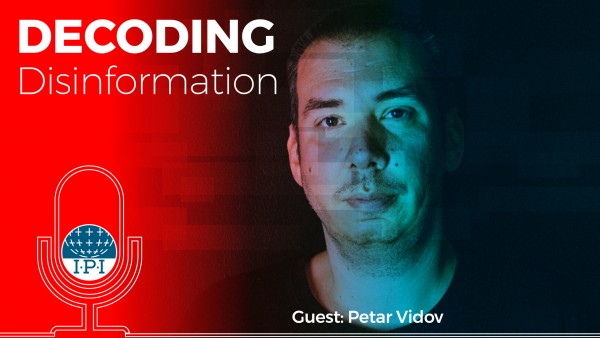The International Press Institute (IPI), a global network of editors, media executives and leading journalists for press freedom, today wrote to the UK Ministry of Defence and the Secretary of State for Defence about a recent decision by its press office to refuse comment to investigative news outlet Declassified UK.
IPI expressed concern that the sudden decision to exclude the publication from a MOD comment, and the subsequent lack of communication on the matter, appeared to have been taken in retaliation for its previous critical reporting and editorial stance, raising issues for press freedom.
The letter, signed by IPI’s Deputy Director Scott Griffen, sought clarification over whether Declassified UK had been placed on a list of outlets barred for receiving official communications and clarification over MOD policy on “blacklisting” certain outlets.
Read the full letter below
04 September 2020
Dear Sir Stephen Lovegrove, Permanent Secretary for the Ministry of Defence (MOD),
Dear Carl Newns, Director, Defence Communications at UK MOD,
Dear Ben Wallace MP, UK Secretary of State for Defence,
Cc: Lt Col Richard Wade, MOD spokesperson
The International Press Institute (IPI), a global network of editors, media executives and leading journalists for press freedom, would like to raise our concern regarding the apparent decision by the Press Office of the UK Ministry of Defence (MOD) to blacklist an investigative media organisation in seeming retaliation for its critical reporting.
On August 25, Phil Miller, a journalist at Declassified UK, a news outlet launched in 2019 focusing on British foreign, military and intelligence policies, emailed MOD spokesperson Lieutenant Colonel Richard Wade seeking a statement for an article he was writing about a soldier in the British army, as is standard journalistic practice.
Mr Miller had sought an official MOD statement following the arrest of serving soldier Lance Corporal Ahmed Al-Batati, after the latter held a one-man protest outside Downing Street against the UK’s continued support for Saudi Arabia’s war in Yemen.
Rather than a standard response, the journalist received a reply from Lt. Col Wade enquiring about “what sort of angle have you taken on the war in Yemen”. An hour later, Mr Miller was informed that the MOD had declined to comment and told he would instead have to submit a Freedom of Information request.
When the journalist asked why the Daily Telegraph newspaper had been given a comment on the matter while his had not, he was told: “We no longer deal with your publication”. When asked to justify, the spokesman replied via email that “someone else in the press office” might be able to explain. After Declassified UK’s editor, Mark Curtis, wrote to Lt. Col Wade asking for clarifications, he too was left in the dark.
IPI is concerned this sudden decision to exclude Declassified UK from a MOD comment, and the subsequent lack of communication on the matter, appears to have been taken in retaliation for its previous critical reporting and editorial stance on the UK armed forces.
It goes without saying that the exclusion of a media publication by a government ministry due to its investigative reporting would undermine press freedom and set a worrying precedent for other journalists whose job it is to report in the public interest on the British military.
Criticism should be no reason to discriminate against a media publication. In contrast, tough journalism by outlets such as Declassified UK on matters such as the UK’s foreign and military affairs, uncomfortable though it often may be for those in power, is crucial for a transparent and functioning democracy.
In light of these concerns, we would welcome a clarification from the MOD press office about whether Declassified UK has been placed on a list of media barred from receiving comment and, if so, on what grounds.
In addition, we would also appreciate confirmation about whether it is the current policy of the MOD to “blacklist” certain publications for different treatment in terms of receiving official communications, and whether other professional media outlets have also been classified and excluded in such a way in the past?
Furthermore, we encourage the UK’s Secretary of State for Defence, Ben Wallace, who oversees the MOD, to ensure that no media outlets are deliberately discriminated against within the Ministry. We would also urge the MOD to formally respond to Declassified UK’s editor to make sure channels of communication are reopened.
In recent years, the UK government has established itself as a leading voice on matters of media freedom, hosted international conferences, and launched a human rights sanctions regime to help target those seriously attacking the freedom of the press. It would therefore be unfortunate to see this progress undermined by this incident.
We thank you in advance for taking our concerns into consideration and look forward to your response.
Sincerely,
Scott Griffen, IPI Deputy Director

This letter by IPI is part of the Media Freedom Rapid Response (MFRR), a Europe-wide mechanism which tracks, monitors and responds to violations of press and media freedom in EU Member States and Candidate Countries.



